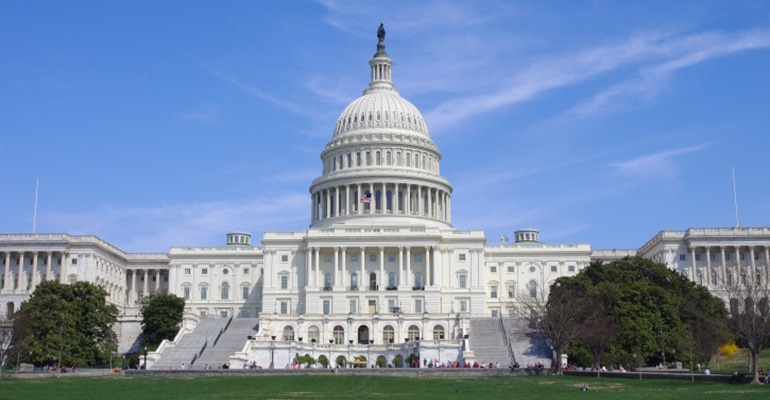Inland waterway infrastructure on different tracks
House votes to support full use of Harbor Maintenance Trust Fund.

House lawmakers passed a bill that would allow for full utilization of fees collected in the Harbor Maintenance Trust Fund (HMTF) for maintaining U.S. harbors and ports at their authorized depths. Meanwhile, Senate floor consideration of the Fiscal Year 2020 Energy & Water Appropriations bill is currently stalled amid the larger partisan standoff on the overall appropriations process.
The House Energy & Water Committee bill and the Senate committee-approved version both include significant increases in funding for inland waterway projects. On the 2020 Water Resources Development Act (WRDA) front, the Senate Environment & Public Works (EPW) Committee set a Nov. 1 deadline for non-committee members to submit priorities for inclusion in the bill next year.
The American Soybean Assn. (ASA) said its priority for the 2020 WRDA is to shift the cost-share ratio for Inland Waterways Trust Fund projects from the current 50/50 to 85/15 or 75/25 to further accelerate the completion of much-needed upgrades to locks and dams. This priority has been communicated to congressional offices, and a number of senators have indicated their intent to include the cost-share change among their priority requests.
The Senate EPW Committee held a hearing related to the 2020 WRDA on Oct. 23 titled “Improving American Economic Competitiveness through Water Resources Infrastructure.” It featured testimony from the Army Civil Works Division, and Sen. Tammy Duckworth (D., Ill.) raised the importance of addressing inland waterway infrastructure at the hearing.
On Oct. 28, the House passed H.R. 2440 to ensure that all HMTF revenues will go to their intended uses. The legislation, which would wall off HMTF revenues so they are used only for port and harbor maintenance, passed by a bipartisan vote of 296-109.
ASA said it supports this policy and noted that Congress has been gradually increasing the amount of HMTF dollars used for intended purposes following an agreement in the 2014 WRDA.
The National Grain and Feed Assn. (NGFA) commended House lawmakers for passing a bill that would allow for full utilization of fees collected in the HMTF for maintaining U.S. harbors and ports at their authorized depths.
According to the Congressional Budget Office, over the next decade, H.R. 4220 -- the Full Utilization of the Harbor Maintenance Trust Fund Act of 2019 -- would enable $34 billion to be deposited into the HMTF to be accessed and spent for its collected and intended purpose – namely, dredging U.S. harbors to their constructed specifications.
“The fact that more than $9 billion has been collected and deposited in the HMTF but gone unspent for its intended purpose is a fiscal disservice to those that pay the 0.125% ad valorem tax on the value of cargo imports,” NGFA said after the House vote. “H.R. 4220 will allow those dollars to be spent on much-needed dredging at the nation’s ports to help partially restore some of the United States’ comparative transportation advantage, which is essential to capturing export market opportunities that contribute to U.S. economic growth.”
NGFA outlined its support of H.R. 2440, sponsored by House Transportation & Infrastructure Committee chairman Peter DeFazio (D., Ore.), in an Oct. 25 letter to the committee’s leadership. NGFA also encouraged its members to send letters to their members of Congress in support of the legislation. DeFazio referenced NGFA’s support for this legislation as it was debated on the House floor.
The prospects for H.R. 2440 getting passed by the Senate and enacted into law are still uncertain.
About the Author(s)
You May Also Like



.png?width=300&auto=webp&quality=80&disable=upscale)

